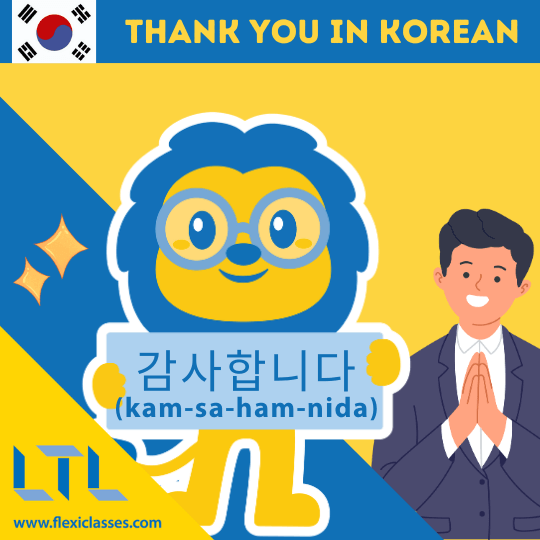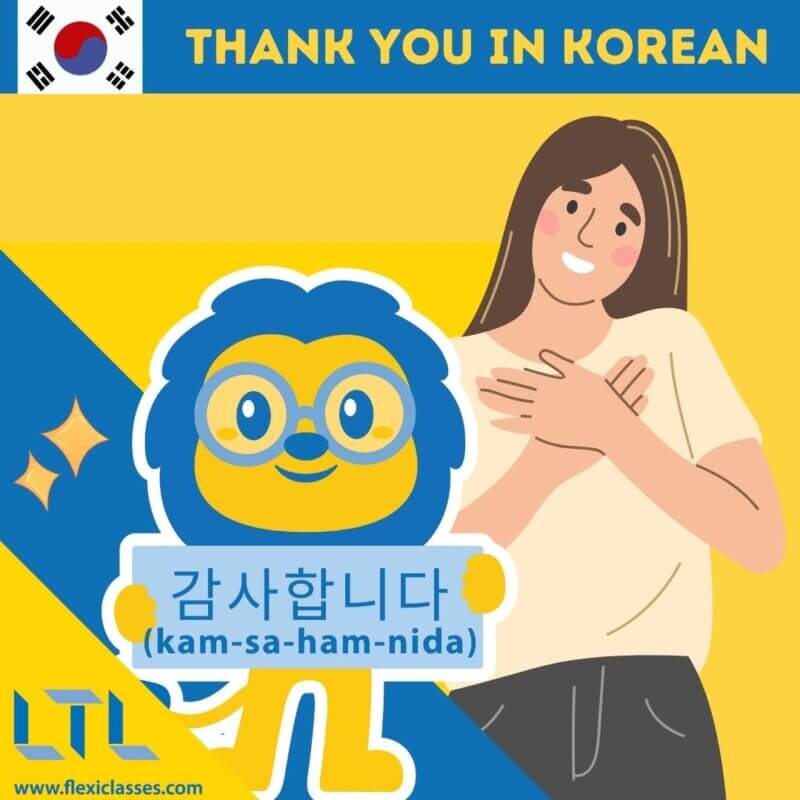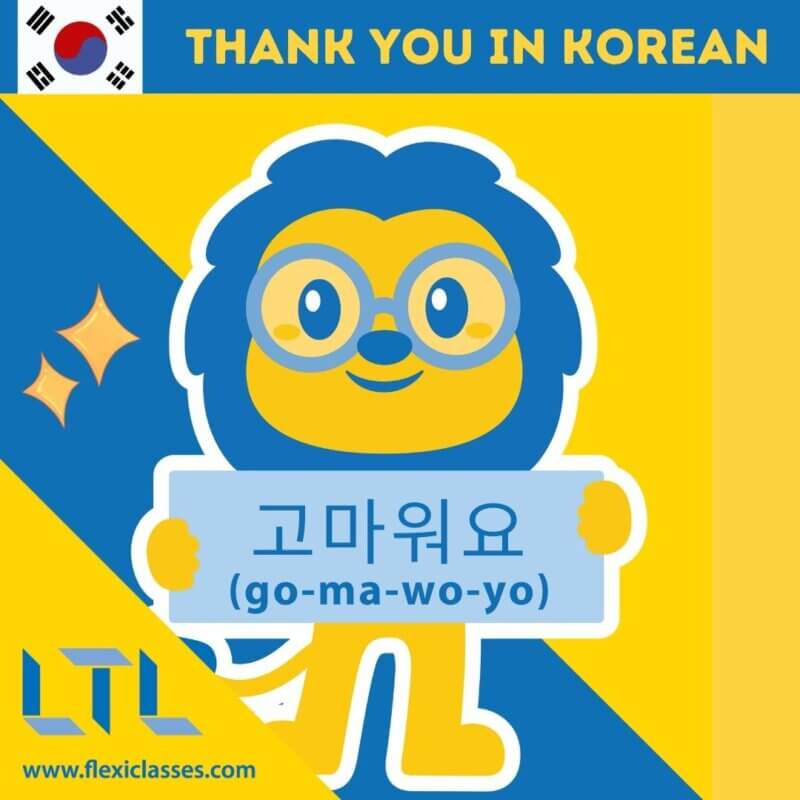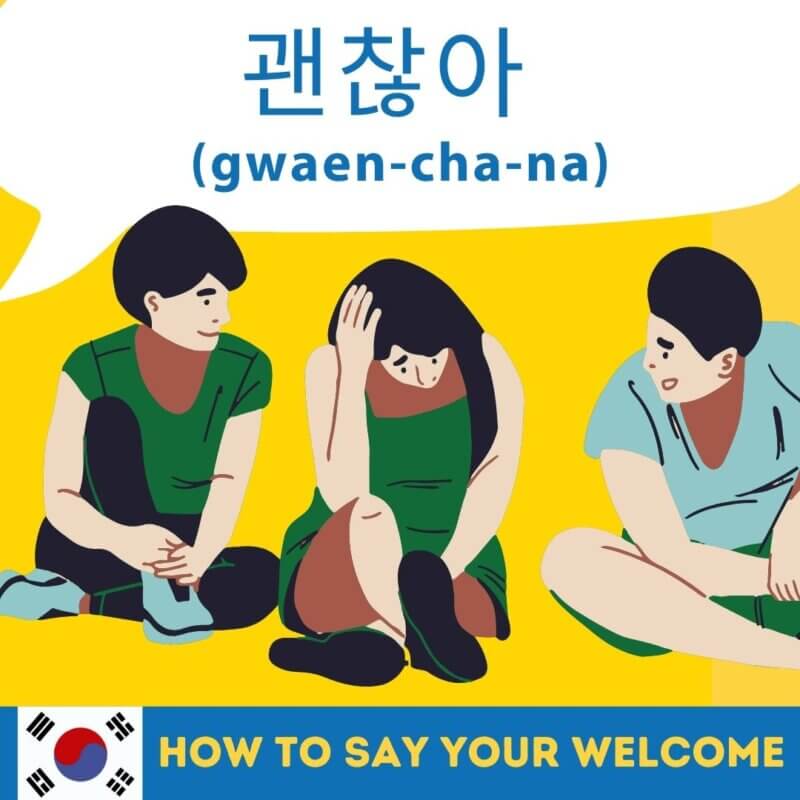From Polite to Casual: Different Ways to Say Thank You in Korean
Discover the Heartfelt Ways to Say ‘Thank You’ in Korean! Plus, Explore Unique Cultural Insights!
✨ Saying thank you is one of the most essential words we use daily and one of the first words you should learn when studying a language.

At the end of the day, there are so many things to be thankful for. Like in many Asian cultures, respect and social etiquette is important, especially through the words you use, and Korean is not an exception.
In Korean, there are several ways you can express your gratitude. With the complex nature of honorifics in the Korean language, knowing the right expression to use in different situations is key.
In today’s lesson, we will delve into the different ways to say thank you in Korean. By the end of this lesson you will be familiar with which types of thank you to use in a given situation.
Join us on a journey to discover the Korean 감사합니다 !
⬇️ Interested in one of the contents below? Clicking on the link will bring you to your preferred section!
Thank You in Korean | The Most Common Thank You
Thank You in Korean | Four Types of Thank You
Thank You in Korean | Commonly Misused Form
Thank You in Korean | How To Say Your Welcome
Thank You in Korean | Quiz
Thank You in Korean | FAQs
Thank You in Korean | The Most Common Thank You
사합니다 (kam-sa-ham-nida) is the most common and most polite way to say thank you in Korean.

👉 If you have a great interest in the Korean language you probably have heard about honorifics – a grammatical form that shows respect and politeness. Honorifics are commonly used by people older than you, your superior at work, or strangers or acquaintances that you are not close to. Honorifics is quite a complex subject and there are different ways to use them.
The most polite form of speaking is called 존댓말 (jon-daen-mal), and the informal form of speaking is called 반말 (ban-mal).
Keep in mind that you can’t go wrong with using 존댓말 (jon-daen-mal) to say thank you but can sometimes go very wrong with 반말 (ban-mal).
Let’s learn when to use which one
so you can avoid mistakes when speaking with a Korean.

14 of the Best Korean Streaming Platforms 🍿
Where to watch Korean dramas? That is definitely a question we all asked ourselves! We listed 12 of the best Korean streaming platforms for you.
Thank You in Korean | Four Types of Thank You
👉 Here are the four common ways to say thank you in Korean.
| Korean | TRANSLITERATION |
|---|---|
| 감사합니다 | gam-sa-ham-nida |
| 고맙습니다 | go-map-seum-nida |
| 고마워요 | go-ma-wo-yo |
| 고마워 | go-ma-wo |
감사합니다 (gam-sa-ham-nida)
✨ This is the go-to ‘thank you’ for Koreans. If you are confused about which form to use, just go with this one because you won’t go wrong with saying 감사합니다 (gam-sa-ham-nida) for any given situation.

This is appropriate to express to someone you need to express the most polite form of speaking and to the most casual.
So if there is one word you will need to master today, is this word, 감사합니다 (gam-sa-ham-nida).
Also, use this word with a bow to emphasize your level of gratitude. Body language is a vital part of the language too as sometimes it speaks louder than words.
In English, we sometimes use the phrase Thank you very much to express an even more sincere level of gratitude.
| Korean Phrase | TRANSLITERATION | meaning |
|---|---|---|
| 대단히 감사합니다 | de-dan-hi gam-sa-ham-ni-da | 대단히 (de-dan-hi) means “extremely” or “greatly” and is commonly used with 감사합니다 (gam-sa-ham-nida). |
| 정말 감사합니다 | jeong-mal gam-sa-ham-ni-da | 정말 (jeong-mal) means “very” and is also commonly used with 감사합니다 (gam-sa-ham-nida). |
| 고맙습니다 | go-map-seum-ni-da | A formal way to say “thank you.” |
Many native Koreans will use 고맙습니다 (go-map-seum-ni-da) in a more casual situation or to people they are a bit familiar with.
For example, when speaking to people in a social group that you are meeting for the first time, or talking to your partner’s family member, this is a suitable way to express your thanks.
고마워요 (go-ma-wo-yo)
👉 This word is a casual way to say thank you to someone.

Natives will use (go-ma-wo-yo) to peers or acquaintances they are quite familiar with. People will also use this to someone who might be younger than them but still want to show respect.
고마워 (go-ma-wo)
👉 The most informal way to say thank you.
Natives only use this around their close circles. Close friends or family members or people younger than them that they know very well. You must not use this in a business setting.

29 Korean Jokes to Sound Like a Native
You want to impress your Korean friends by showing that your language skills have improved? It’s time to learn some Korean jokes! Here are 29 for you.
Thank You in Korean | Commonly Misused Form
👉 감사해 (gam-sa-hae) is one of those expressions that makes sense but Natives don’t usually use. Since 감사 means thanks and 해 is the verb that follows, it’s easy to think this would be an alternative way to say thank you.
고마워 (go-ma-wo) is the most commonly and naturally used expression.
So stick with 고마워 (go-ma-wo) instead.
Thank You in Korean | How To Say Your Welcome
👉 Now that you know how to say thank you, you should learn how to say you’re welcome to be prepared to answer when someone thanks you for something.
As with thank you, there are several ways
you can say you’re welcome.
천만에요 (chun-man-ae-yo)
👉 The most formal way to say your welcome is 천만에요 (chun-man-ae-yo). 천만 (chun-man) means ten million in Korean.
The expression basically means that what they’ve done for you is a tiny fraction of the ten million more important things out there. Simply put it’s a similar way we say “it was nothing” in English.
별말씀을요 (byul-mal-sseum-eul-yo)

별말씀을요 (byul-mal-sseum-eul-yo) translates to don’t mention it, the exact phrase we also use in English.
This is also a formal way to say thank you and is more commonly used than 천만에요 (chun-man-ae-yo).
아니에요 (a-ni-ae-yo)
아니에요 is the most common way to say thank you in Korean. If there is one expression you want to remember, this will be it.
But beware as the nature of the word is negative, the tone of voice can shift the meaning from, your welcome to NO. Use a polite tone of voice and don’t forget to smile!
아니야 (a-ni-ya) or 괜찮아 (gwaen-cha-na)

👉 It’s always good to be extra cautious when using.
Just a gentle reminder, if you are unsure which form to use, say 감사합니다 !
아니야 (a-ni-ya) or 괜찮아 (gwaen-cha-na) are the most informal ways to say thank you.
These are 반말 (ban-mal) so use them with your close friends and family members.
There is nothing more effective than speaking to an actual Native to hone your skills to fluency. Plus, it’s a great phrase we don’t get tired of hearing!
Whether you want to say thank you to a friend, a teacher or someone who helped you out, express your gratitude using the four most common ways to say thank you in Korean.
USEFUL VOCABULARY
👇 We should have you pretty well covered with the following vocabulary and phrases:
| Korean | TRANSLITERATION | English |
|---|---|---|
| 감사합니다 | gam-sa-ham-nida | Thank you (most polite form) |
| 고맙습니다 | go-map-seum-nida | Thank you (casual/formal) |
| 고마워요 | go-ma-wo-yo | Thank you (casual) |
| 고마워 | go-ma-wo | Thank you (informal) |
| 대단히 | de-dan-hi | Extremely/Greatly |
| 정말 | jeong-mal | Very |
| 천만에요 | chun-man-ae-yo | You’re welcome (most formal) |
| 별말씀을요 | byul-mal-sseum-eul-yo | Don’t mention it (formal) |
| 아니에요 | a-ni-ae-yo | You’re welcome (common) |
| 괜찮아 | gwaen-cha-na | It’s okay (informal) |
👉 BONUS | Interested in other languages too? Why not check out our mega list of 500 Chinese words to learn, the 100 most common Japanese words and the most commonly used words in Vietnamese too.
Thank You in Korean | Quiz
Thank You in Korean | FAQs
How does the MZ generation say thank you online?
ㄱㅅ which is the abbreviation of 감사 like ‘ty’ for thank you.
Learn more about Korean text abbreviations here.
How to say thank you after a meal.
잘 먹었습니다 (Jal meo-geo-seum-nida)
How to say “no thank you” in Korean?
아니요, 괜찮아요
Want More From LTL?
FANCY LEARNING KOREAN? Check out our online Korean courses here.
We offer a 7-day free trial to all online students where you can study Korean 24/7.
Want to study Korean in Korea instead? Our Korean courses in Seoul can either be taken in small groups of no more than 5 students or individually for a more tailored experience.
We even offer incredible homestay experiences in Seoul too.
To top it all off, it certainly doesn’t end with Korean. Check out the other languages we teach 👇🏻










